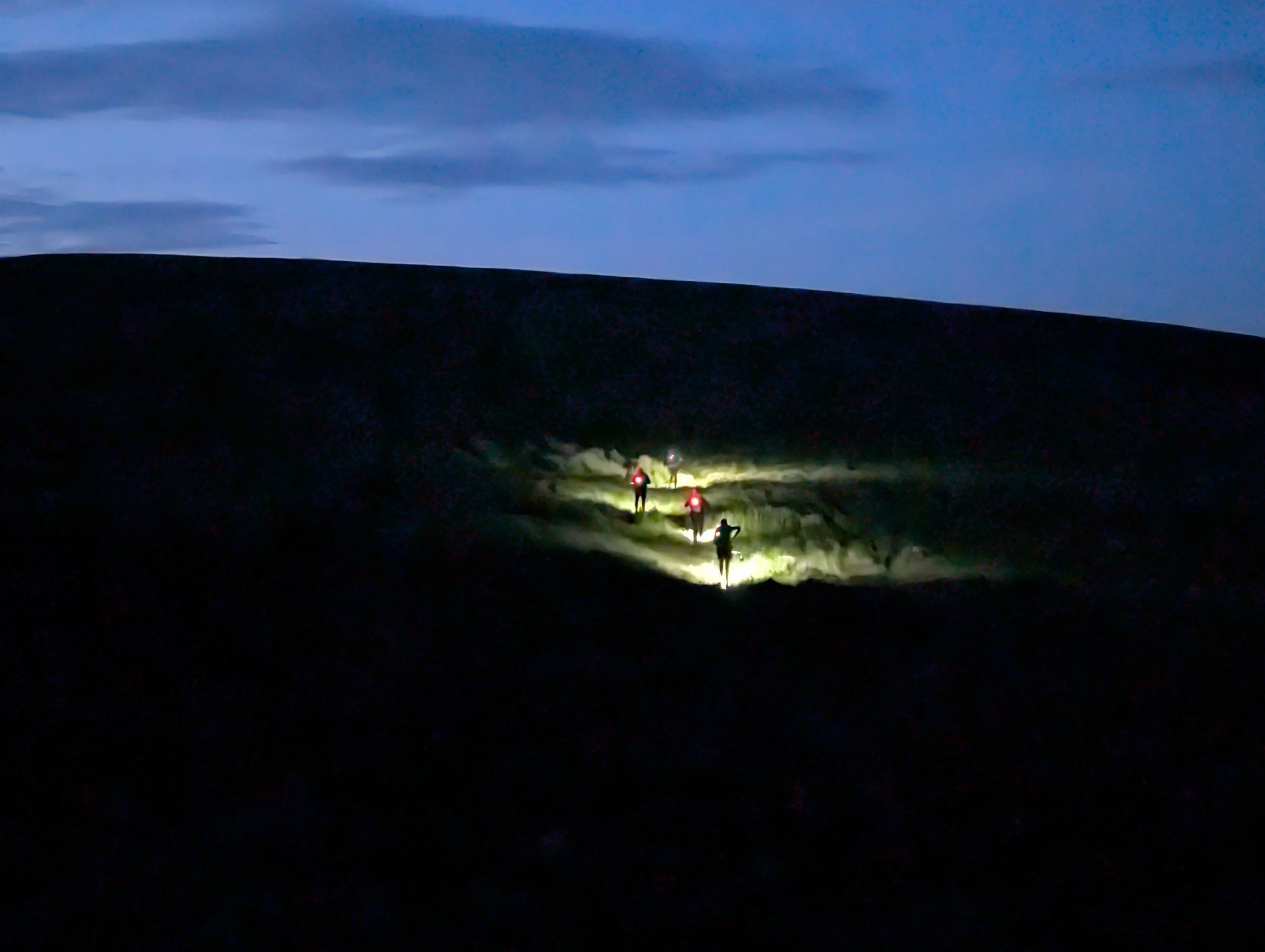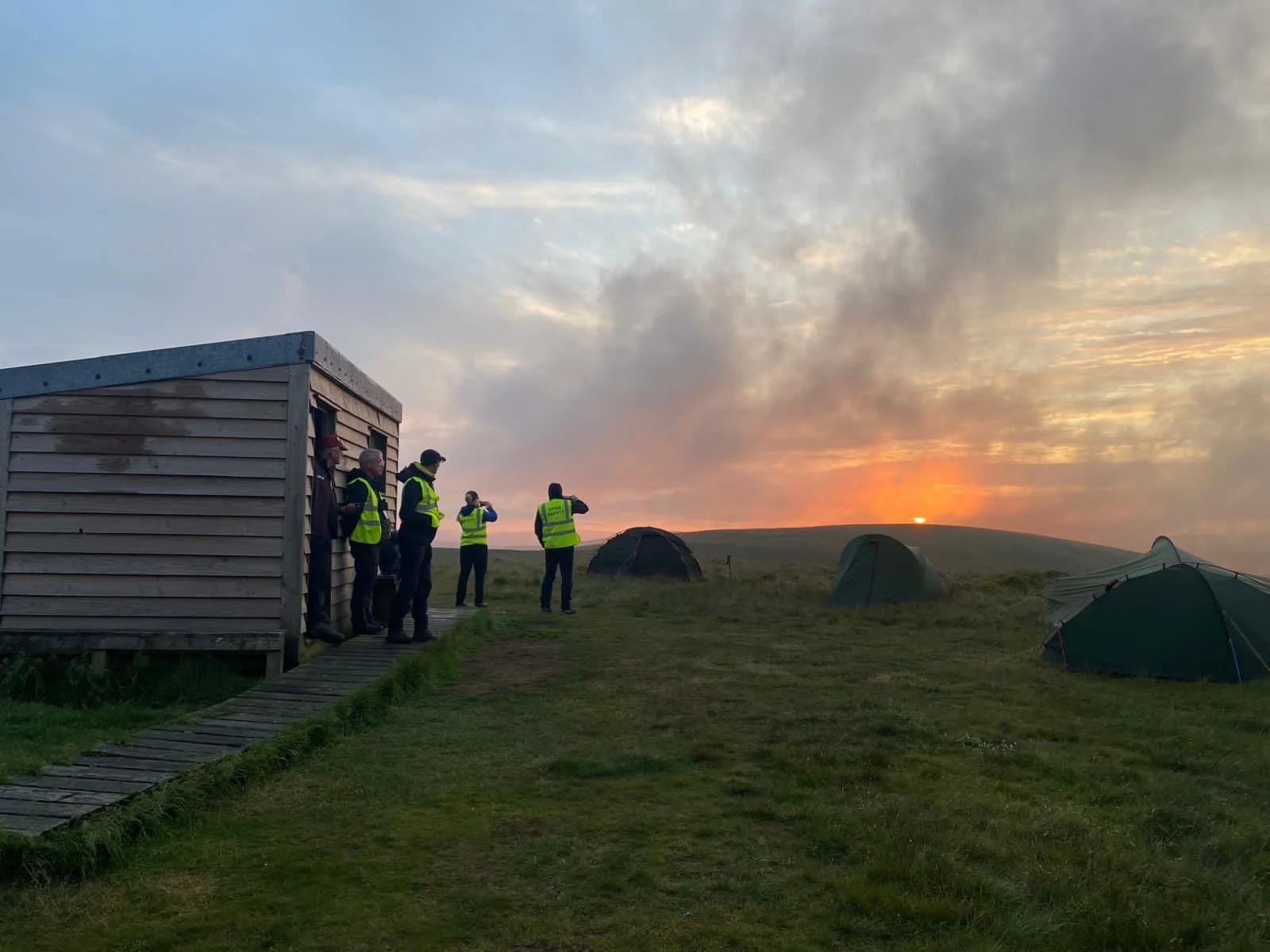The Ultimate UK-Based Expedition Medic Gig: The Montane Summer Spine Race
Article and photos contributed by James Murray.
The Montane Summer Spine Race is known as one of Britain’s most brutal Ultra events - 268 miles along the Pennine Way, through exposed moorlands, river crossings, and unpredictable weather. This year, I joined Global Expedition Medics for my first experience as an event medic. I was based out of Alston Youth Hostel, Checkpoint 4 on the course.
From the outset, I wasn’t quite sure what to expect. My usual clinical practice felt a world away from the mud, grit, and determination of ultrarunning! The idea of treating elite athletes, mid-race was a little daunting. But as the first weather beaten runners began to arrive I, too, found my own footing.
Within the Montane Summer Series there are a variety of races running (ha!) simultaneously. Our checkpoint supported competitors in both the full Summer Spine (283 miles) and the Challenger North (160 miles) races. The runners who came through our doors were a diverse bunch: seasoned Spine veterans, determined amateurs, and elite ultra-athletes alike. Common presentations included severe blisters, tendonitis, gastrointestinal upset, and the inevitable wear and tear of days on the trail. One of the more challenging cases involved caring for a runner with hypotension, lethargy, nausea and vomiting who thankfully made a good recovery but definitely highlighted the importance of good pre-hospital medicine.
Working as part of a four-doctor team, with senior support on-call at all times, I felt well-supported throughout the event. Teamwork was key: balancing clinical decision-making with logistics, welfare, and an understanding of race dynamics. Not every runner wanted or needed a full medical review, and learning when to step in and when to let athletes manage their own race was really important. Working on the Spine give me a better understanding of the psychology behind completing an ultrarace, and supporting the racers to make their own (safe) medical decisions was important for their race mindset.
One early anxiety was the prospect of treating the front-runners. Would they expect rapid, high-performance care? Would I slow them down? In practice, the leading athletes were impressively self-sufficient and pragmatic about their needs. Simple interventions like blister management, taping and hydration advice were often all that was needed. Their ability to know their own bodies and ask for help when needed made my role much easier than I had imagined.
Reflecting on my time with Global Expedition Medics, I’m definitely inspired by how rewarding this type of event work can be. The environment may be remote and unpredictable, but the sense of community between athletes, volunteers, and medical staff is fantastic. There’s a shared respect for the physical and mental challenges that this race demands. I’ve learned a huge amount, not just clinically, but about teamwork, adaptability, and supporting endurance athletes in extreme conditions. Most of all, I’ve caught the bug. I’d love to return for future Spine events, and explore more opportunities in expedition and adventure medicine. What a buzz, and definitely a different cohort to my usual group of patients!



